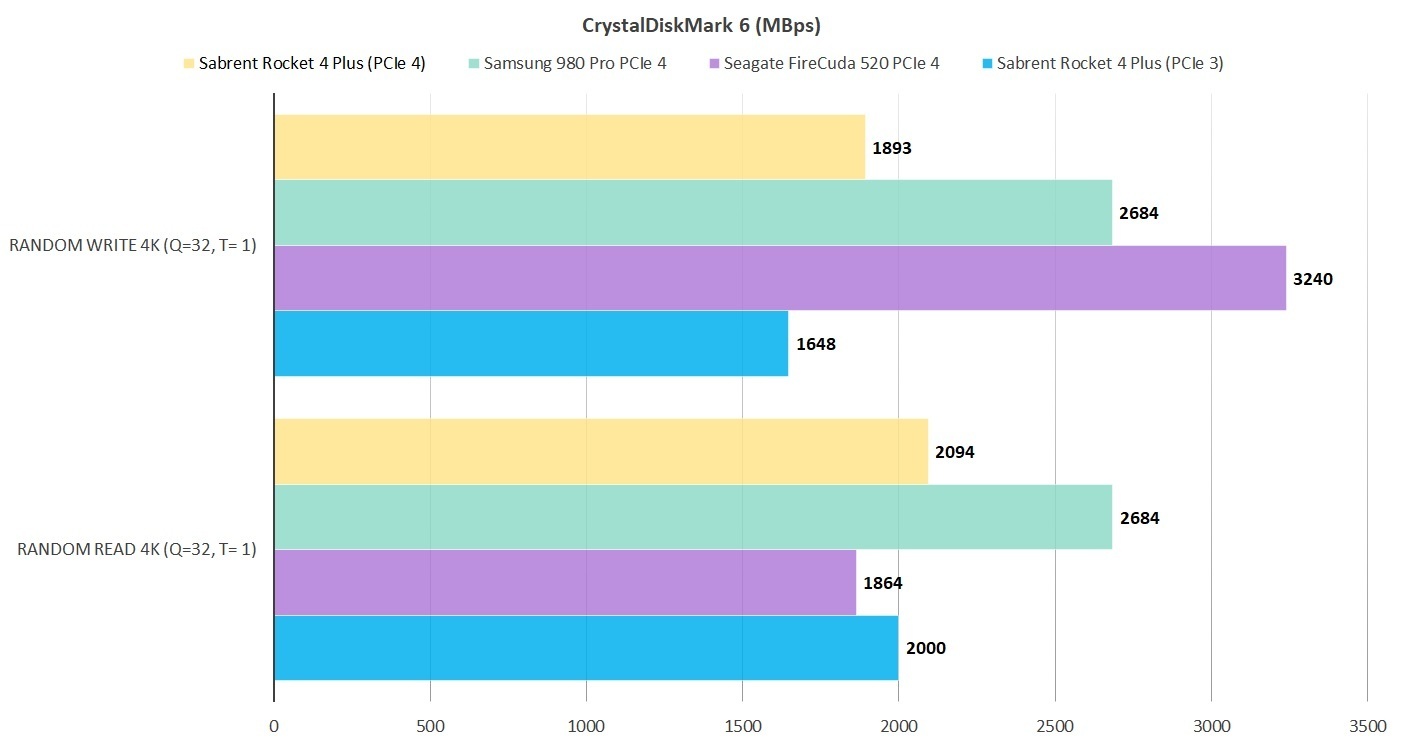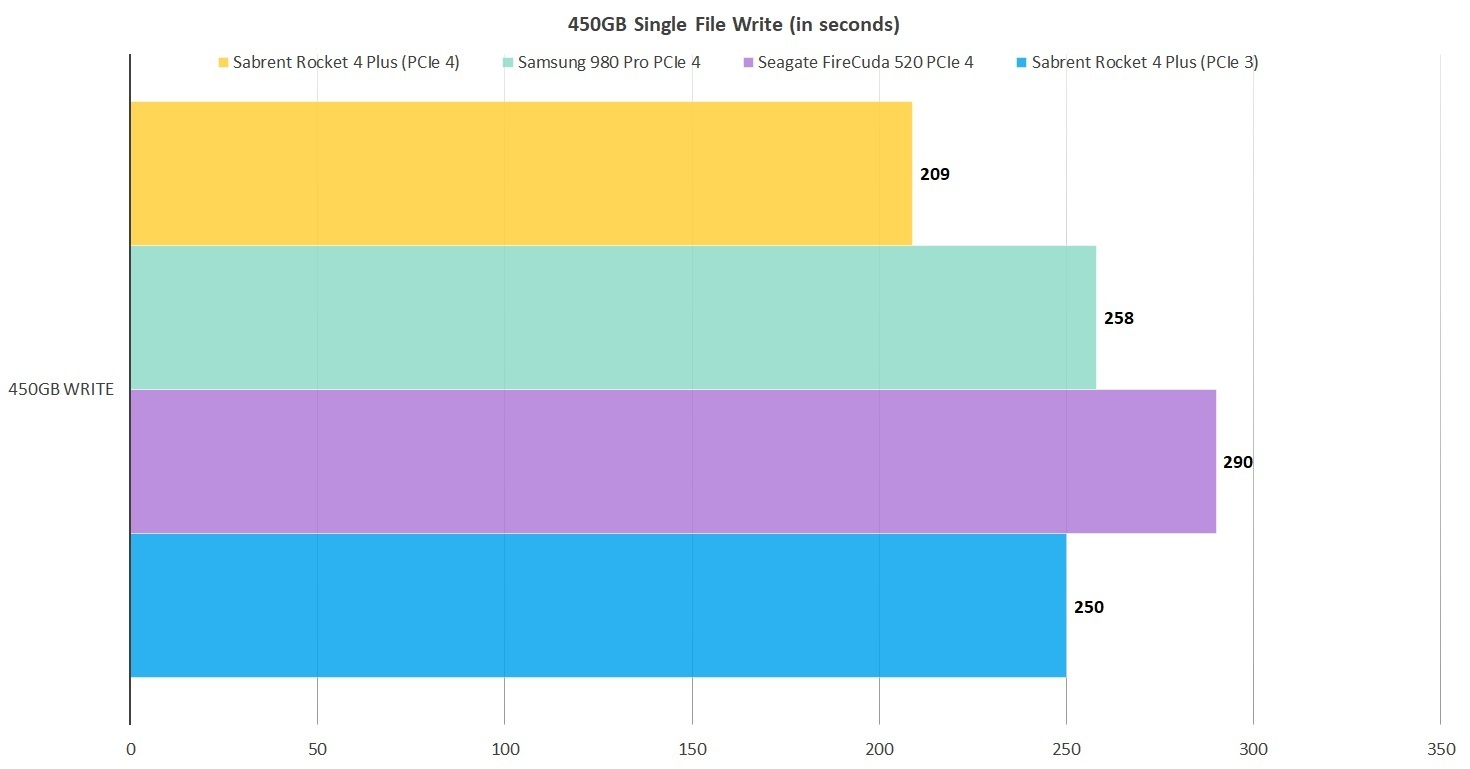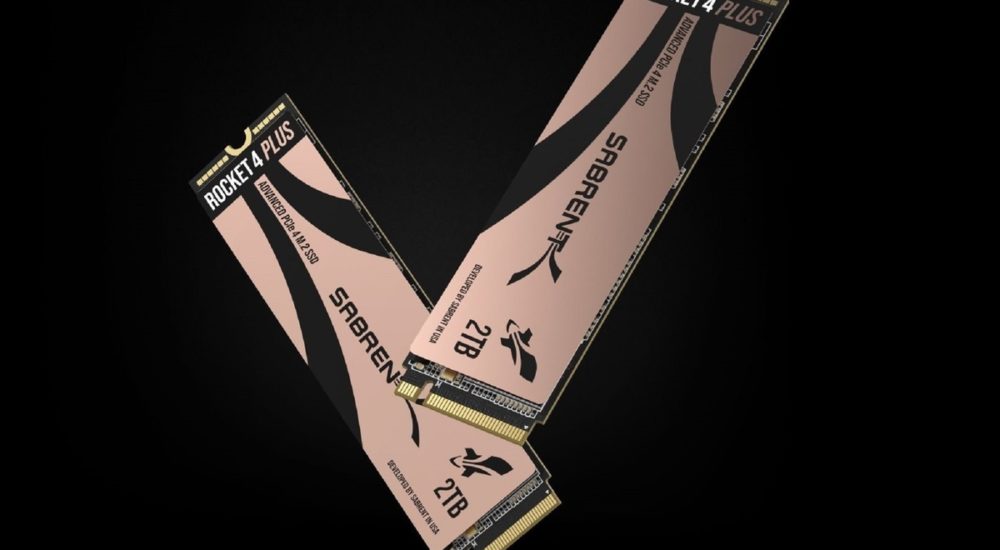Sabrent must’ve read some of my articles and discovered my love of the color copper. The heat-spreader and the metal carrying case for the brand spanking new Rocket 4 Plus PCIe 4 NMVe SSD feature the color in copious amounts. I like it. Even if copper leaves you flat, the drive’s stellar performance will grab your attention—it bested the Samsung 980 Pro in many tests.
Specs and pricing
The NVMe SSDs we review all use the M.2 connector, and are 22 mm wide by 80 mm long (2280). The Rocket 4 Plus is an x4 PCIe 4.0 device featuring a Phison PS5018-E18 controller and 96-layer, Micron TLC NAND. Sabrent promises not to change to slower components, as has happened with a couple of SSD vendors recently. There’s also 2MB of DRAM cache. NAND is treated as SLC for secondary caching to the tune of 25 percent.
Beyond that, the drive is enveloped in coppery goodness (the label) and is available in two flavors: 1TB ($199.98 on Amazon) and 2TB ($400 on Amazon). A 500GB model exists but is hard to fine online, and a 4TB flavor will ship eventually.

The drives carry a 5-year warranty, and are rated for 350TBW per 500GB of capacity. TBW is the number or terabytes that may be written before the drive warranty lapses. It’s quite likely capable of writing more, but that’s the company’s cut-off point for replacement. Most users are unlikely to come close to that in a decade.
Performance
All that coppery goodness would mean nothing if the Rocket 4 Plus didn’t haul the freight. The 2TB version I tested delivers. The Rocket 4 Plus’s CrystalDiskMark 6 sustained throughput numbers are impressive indeed, trading first place between writing and reading with the Samsung 980 Pro.

The Rocket 4 Plus couldn’t quite match the 980 Pro’s overall real world performance in our 48GB transfer tests, but it took a solid second place.

CrystalDiskMark’s 4K tests showed another story—the Rocket 4 Plus lagged significantly.

Where the 2TB Rocket 4 Plus really rocked was in our 450GB sustained write tests. Note however, that the 980 Pro Samsung sent me was only a 1TB model. Though it’s not shown in the charts, the 1TB version dropped to around 675MBps (PCIe 3) at around the 350GB mark in the copy and took 386 seconds, compared to the 2TB version’s 250 seconds on PCIe 3 and 209 seconds over PCIe 4. Yes, cache makes a difference.

I should also mention that in general, it’s never a good idea to run an SSD close to capacity. Write speeds will slow down tremendously without NAND available as cache. Always overbuy in terms of capacity.
The PCIe 3 tests utilized Windows 10 64-bit running on a Core i7-5820K/Asus X99 Deluxe system with four 16GB Kingston 2666MHz DDR4 modules, a Zotac (NVidia) GT 710 1GB x2 PCIe graphics card, and an Asmedia ASM2142 USB 3.1 card. It also contains a Gigabyte GC-Alpine Thunderbolt 3 card, and Softperfect Ramdisk 3.4.6 for the 48GB read and write tests.
The PCIe 4 testing was done on an MSI MEG X570 motherboard socketing an AMD Ryzen 7 3700X 8-core CPU, using the same Kingston DRAM, cards, and software. All testing is performed on an empty, or nearly empty drive. Performance will decrease as the drive fills up.
A nice buy at 2TB
Though there’s room for improvement in small- and 4K file performance, there’s little else to complain about with the Sabrent Rocket 4 Plus in its 2TB incarnation. That it can wrestle at all with the 980 Pro at this price point is a feather in Sabrent’s (and Phison’s) cap.
This drive is a worthy competitor to Samsung’s 980 Pro, at least in the 2TB version. The 1TB will run out of juice on very long writes, something the 980 Pro won’t do. Regardless, for the price, an excellent SSD.
Pros
- Excellent performance
- Exceptional sustained writes from the 2TB version
- Nice-looking copper color scheme
Cons
- 1TB version ran out of cache before the end of our 450GB write
Source: pcworld.com





































